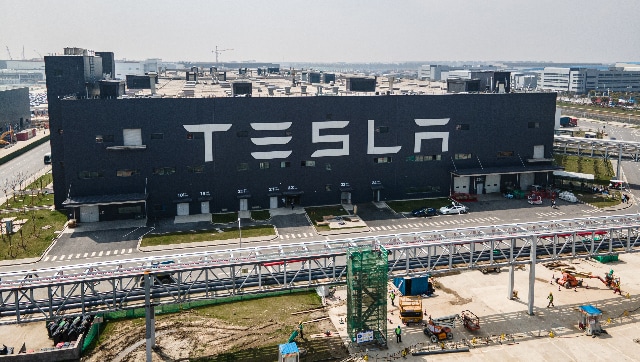Fearing the impending slowdown of the Chinese economy, one of the markets where Tesla has shown the fastest growth, the car company has decided to slow down the production facilities that cater to China. Namely, Tesla China will be operating the Shanghai Tesla factory at a reduced capacity from January 2023.

Tesla has already started to reduce the output of its factory in Shanghai mainly due to the recent COVID outbreak in the country, and the subsequent difficulties in arranging components for their cars.
As per a report by Reuters, Tesla China will be giving its factory workers an extended break for the Chinese New Year, and will only have the production facility making cars, for a period of 17 days in January, starting from January 3 to January 19.
In comparison, last year, Tesla’s Chinese arm kept normal operations during the last week of December last year and allowed workers to take a three-day break for Chinese New Year.
Tesla’s Shanghai plant employs about 20,000 workers. The Shanghai plant accounted for more than half of Tesla’s global output in the first three quarters of this year.
Tesla’s latest production cuts in Shanghai come amid a rising wave of infections after China stepped back from its zero-COVID policy earlier this month. That move has been welcomed by businesses although it has disrupted manufacturing operations outside Tesla.
Like other automakers, Tesla has also faced a downturn in demand in China, the world’s largest auto market. Earlier this month, Tesla offered an additional incentive for buyers taking possession of vehicles in December. The company has cut prices for Model 3 and Model Y cars by up to 9% in China, in addition to a subsidy for insurance costs.
Moreover, Tesla has been finding it increasingly difficult to sell cars in the country. The CMBI or the Brokerage China Merchants Bank International said in a report that daily retail sales of Tesla in China were down by 28 per cent this December, compared to last year.
On the other hand, industry-wide sales, were up by almost 15 per cent in the same time period. BYD, Tesla’s biggest rival in China, were up by 93 per cent.
Tesla had set a target of 50 per cent growth in output and EV deliveries for the year 2022. However, analysts expect that by the end of the year, they will fall short of that by 5 per cent, mainly because of what will seemingly be an unimpressive fourth quarter.
from Firstpost Tech Latest News https://ift.tt/DRI9E1P

No comments:
Post a Comment
please do not enter any spam link in the comment box.